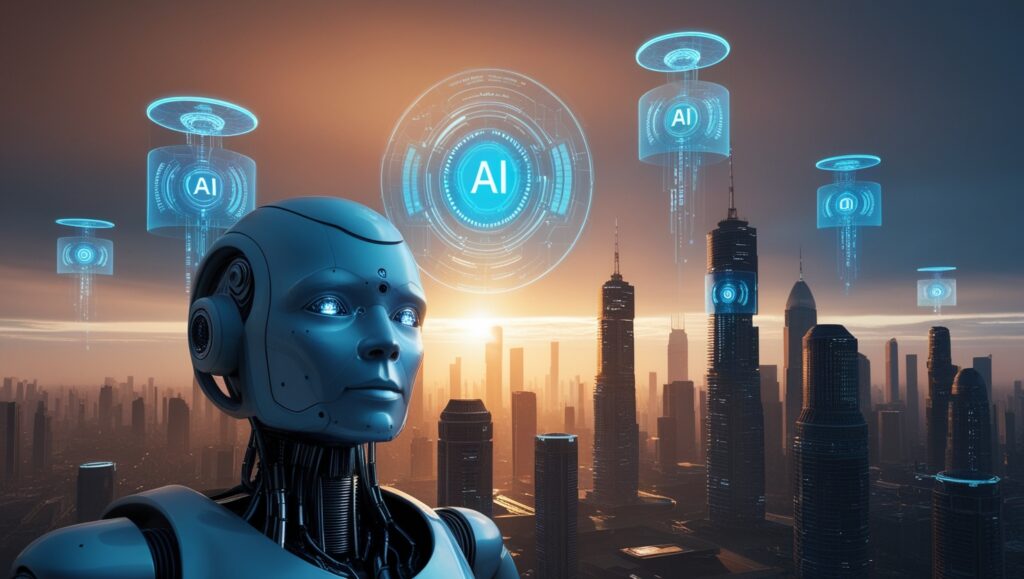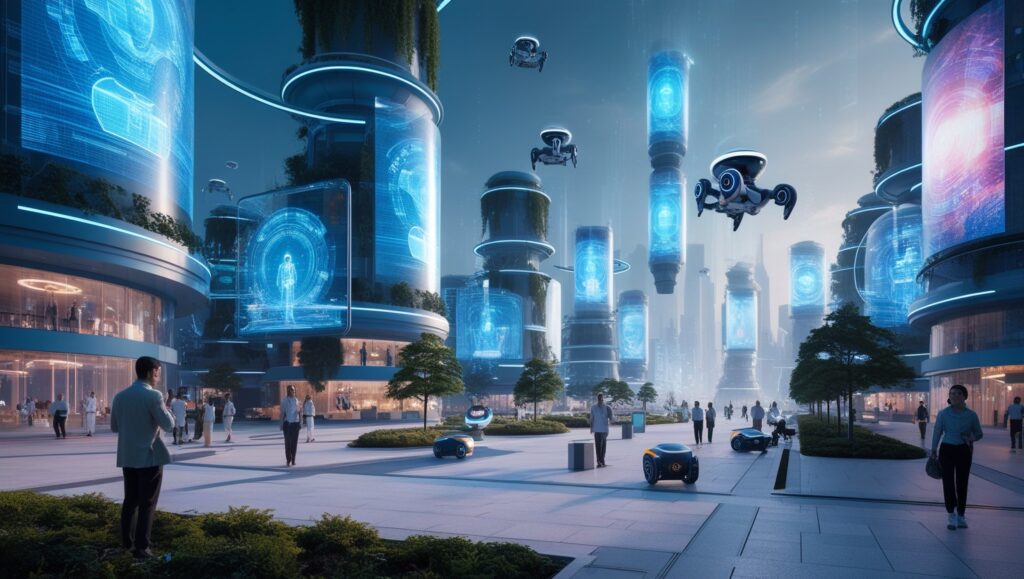Sam Altman, CEO of OpenAI, envisions a future where artificial intelligence transforms society, ushering in the “Intelligence Age.” In his blog post, Altman predicts that we may achieve superintelligence within a few thousand days, leading to unprecedented advancements in various fields and potentially solving global challenges.
1. Sam Altman’s Vision of the Intelligence Age
Sam Altman, the CEO of OpenAI, recently published a thought-provoking blog post titled “The Intelligence Age. ” In it, he outlines his vision for the future of artificial intelligence and its profound impact on society. Altman’s perspective is both exciting and sobering. He predicts a world where AI will transform nearly every aspect of our lives, from education and healthcare to scientific discovery and economic prosperity.
In this article, we’ll delve into the key points of Altman’s blog post and explore the implications of his predictions for our collective future. As we stand on the brink of what Altman calls the “Intelligence Age,” it’s crucial to understand the potential benefits and challenges.
2. The Power of Deep Learning
At the heart of Altman’s vision is the remarkable success of deep learning, a subset of machine learning that has driven many recent advancements in AI. Altman succinctly summarizes the breakthrough: “Deep learning worked.” This simple statement encapsulates years of research and development that have led to AI systems capable of performing tasks once thought to be the exclusive domain of human intelligence.
Altman emphasizes that deep learning has proven scalable, improving predictably as more data and computational resources are applied. This scalability is key to our rapid progress in AI capabilities and forms the foundation for Altman’s optimistic predictions. As we refine and expand deep learning techniques, we can expect AI systems to become increasingly capable of solving complex problems and assisting humans in unprecedented ways.
3. AI’s Impact on Education and Personal Development
One of the most exciting prospects Altman discusses is the potential for AI to revolutionize education and personal development. He envisions a future where every child can access personalized AI tutors capable of providing instruction in any subject, at any pace, and in any language. This level of individualized education could dramatically improve learning outcomes and help unlock each student’s full potential.
Beyond formal education, Altman suggests AI will be a powerful tool for lifelong learning and personal growth. Imagine having a team of virtual experts ready to assist you in tackling any challenge or pursuing any interest. This could lead to a society where continuous learning and skill development become the norm, enabling people to adapt more quickly to changing job markets and pursue their passions with more significant support.
4. The Path to Superintelligence
Perhaps the most provocative aspect of Altman’s blog post is his assertion that we may achieve superintelligence within “a few thousand days.” While this timeline is not precise, it suggests that we could see the emergence of AI systems that surpass human intelligence across all domains within the next decade or so.
Altman believes that as AI systems become more advanced, they will play a crucial role in developing even more sophisticated AI. This could lead to a rapid acceleration of progress, with each generation of AI contributing to creating more capable systems. The potential implications of such a development are staggering, ranging from breakthrough scientific discoveries to solutions for global challenges like climate change and space exploration.

5. Challenges and Opportunities in the AI Era
While Altman’s vision of the future is optimistic mainly, he acknowledges that the transition to the Intelligence Age will not be without challenges. One of the most pressing concerns is the potential impact on the job market. AI will likely transform or replace many jobs, which could lead to significant economic disruption if not managed carefully.
However, Altman remains confident that we will adapt to these changes, just as we have during previous technological revolutions. He suggests that new work and creativity will emerge, and AI will amplify human abilities rather than replace them. The key, according to Altman, is to ensure that the benefits of AI are widely distributed and that we work proactively to address potential downsides.
Another critical challenge Altman identifies is the need to build sufficient infrastructure to support widespread AI adoption. He argues that we must invest in energy production, chip manufacturing, and computing resources to make AI “too cheap to meter.” This abundance of AI capabilities is essential to prevent a future where AI becomes a limited resource that exacerbates existing inequalities.
6. Navigating the Future with AI
Sam Altman’s blog post paints a picture of an exhilarating and daunting future. The Intelligence Age, he describes, promises unprecedented advancements in human knowledge, capabilities, and quality of life. However, it also presents complex challenges requiring careful navigation and global cooperation.
As we move forward, we must engage in thoughtful discussions about the ethical implications of AI development and work to ensure that the benefits of this technology are equitably distributed. By embracing AI’s potential while remaining mindful of its risks, we can work towards a future where artificial intelligence enhances human potential and helps us solve some of our most pressing global challenges.
The dawn of the Intelligence Age is upon us, and while the path forward may be uncertain, the possibilities are truly awe-inspiring. As we stand on the brink of this new era, it’s up to all of us to help shape a future where AI is a powerful tool for human progress and flourishing.
7. For more
Read Sam Altman’s blog on The Intelligence Age.



